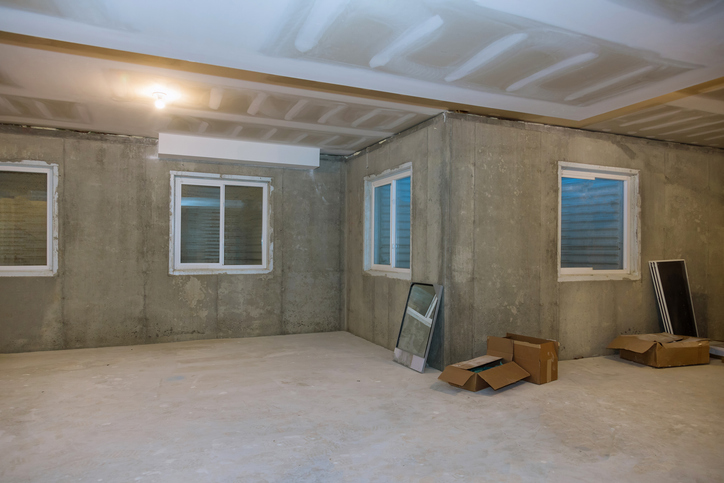Introduction
Are you planning to install a new window? Basement window installation is a crucial yet often overlooked part of home renovation. While upper-floor windows tend to receive more attention, basement windows serve vital functions like ventilation, natural light, and even emergency egress. Installing the right basement window not only enhances safety and comfort but can also improve the energy efficiency and overall appeal of your home. However, this task requires more than just cutting a hole and inserting glass. It involves planning for moisture control, structural integrity, and local code compliance. If done incorrectly, poor installation can lead to water leakage, mold problems, and structural damage. Whether you’re replacing an old unit or adding a new one, this guide provides essential tips to help you get the job done right.
Basement Window Installation: Essential Tips
1. Choose the Right Type of Basement Window for Your Needs:
Before beginning the installation process, it’s critical to choose the appropriate type of basement window that fits your space, purpose, and legal requirements. Casement windows are ideal for egress purposes as they can fully open outward, allowing someone to escape in case of an emergency. Hopper windows, which open inward from the top, are commonly used for ventilation in tight spaces and are popular due to their compact design. Sliding windows are also a functional choice for larger openings. Your selection will depend on factors like natural light preference, airflow needs, and the structural limitations of the wall. A window fixing company can help assess your space and guide you in choosing the best solution based on your goals and local code requirements.
2. Ensure Your Installation Meets Local Building Codes:
One of the most important aspects of the installation is compliance with local building codes, especially if you’re installing an egress window. These codes dictate the minimum size, opening capability, and window well dimensions to ensure a safe exit in emergencies. In many regions, the window must have an opening area of at least 5.7 square feet and be no higher than 44 inches from the basement floor. Codes may also require a ladder or steps if the window well is deeper than 44 inches. Ignoring these requirements not only risks safety but can also lead to costly penalties or complications during home inspections or sales. Hiring experienced professionals who offer window services ensures your installation meets every legal standard.
3. Prepare the Area Properly Before Installation:
Proper preparation is key to successful installation. You’ll need to excavate the exterior ground if the window is below grade and make sure the opening is structurally sound. Use a level and measuring tape to ensure accuracy, and consider hiring a structural engineer if you’re modifying a load-bearing wall. Moisture control is essential, so waterproof the area surrounding the window to prevent leaks and flooding. Flashing tape and caulk should be used to seal the edges, while proper insulation helps prevent energy loss. Don’t skip checking the area for mold or rot; existing damage should be addressed before the window is installed. This preparation is vital to ensure the window performs well for years to come.
4. Focus on Drainage to Prevent Future Water Damage
Basement windows are particularly vulnerable to water intrusion, especially during heavy rainfall or snowmelt. Installing a window well with adequate drainage is crucial to keep water from pooling around the window frame. Gravel at the bottom of the well helps water filter through, and a connected drainage pipe can divert excess water away from the foundation. You may also install a clear cover over the window well to keep debris and precipitation out while still allowing light in. Proper drainage not only protects your basement from leaks but also preserves the structural integrity of your foundation. Failure to address drainage could result in expensive window repair and home restoration in the future.
5. Use Energy-Efficient Glass for Long-Term Savings:
Modern basement windows are available with a variety of energy-efficient features, which can help reduce heating and cooling costs over time. Look for double or triple-pane glass with low-emissivity (Low-E) coatings to improve insulation and minimize heat transfer. These features also reduce condensation and block harmful UV rays, which can fade furniture and flooring. Choosing insulated glass units will make your basement more comfortable year-round and enhance your home’s overall energy performance. If you ever notice cracked or fogged panes, timely mirror glass replacement can restore your window’s performance and appearance. Always ask your installer for options that meet ENERGY STAR guidelines for your climate zone.
6. Consider Professional Help for Emergency Replacements:
There may be situations where a window breaks unexpectedly due to storm damage, a break-in, or structural failure. In such cases, seeking emergency window replacement is crucial to secure your home and prevent exposure to outdoor elements. A reputable contractor can quickly assess the damage, remove broken glass, and install a new window safely. Emergency replacements are especially important for basement windows, where security and water tightness are immediate concerns. If the damage happens during cold weather or heavy rain, acting fast can prevent further damage to the basement interior and possessions. Keeping the contact of a reliable provider who offers around-the-clock window services can save you in such unpredictable moments.
7. Don’t Overlook Insulation and Sealing:
Insulation and air sealing play a vital role in maintaining the comfort and efficiency of your basement space. Even the best window won’t perform well if there are air gaps or poor insulation around the frame. Use spray foam insulation around the window cavity to block drafts, and apply high-quality exterior caulk to seal the outside. Inside, a combination of insulation and weather-stripping will keep conditioned air in and pests out. This attention to detail will help reduce energy bills, prevent moisture intrusion, and block outside noise. A skilled installer from a trusted window fixing company will ensure these steps are executed properly for maximum benefit.
8. Maintenance Tips for Long-Term Performance:
After the window is installed, routine maintenance will help ensure it stays in top shape for years. Regularly clean the glass and tracks to remove dirt and moisture. Inspect the seals, caulking, and window wells at least once a year to catch any signs of wear, cracks, or drainage issues. If the window becomes difficult to open or close, it may signal an issue with alignment or frame warping that needs attention. Professional window services can assist with seasonal check-ups and timely window repair to address minor issues before they become major problems. This proactive approach not only protects your investment but also preserves the functionality and safety of your basement space.
Basement window installation is more than just a functional upgrade; it’s a crucial investment in safety, energy efficiency, and home value. From selecting the right window type and ensuring code compliance to proper drainage and insulation, each step plays an important role in the performance and longevity of your window. Whether you’re undertaking a new build or replacing an old window, trusting a professional service can make the process smoother and more reliable. With careful planning and attention to detail, you’ll ensure your basement windows not only look great but also serve their purpose for many years.
Conclusion
Do you need expert help with your basement window installation? Contact our certified team at Clear Winner at (760) 338-0728 for a free consultation and dependable window solutions tailored to your home.



